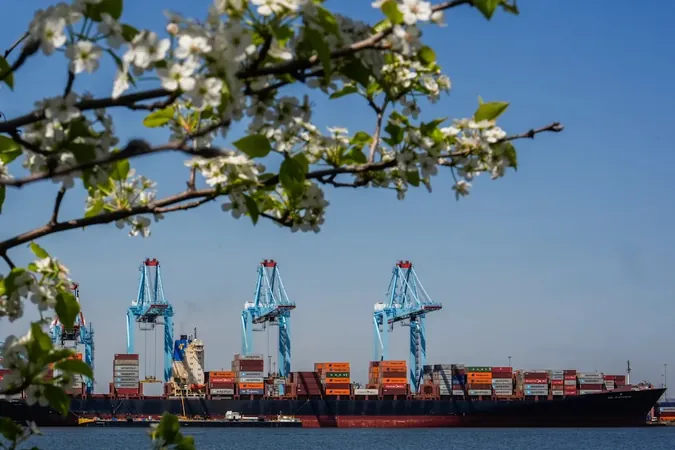
Tariff Turmoil: How Major Companies Are Navigating Financial Uncertainty
2025-04-22
Author: Yan
The Unpredictable World of Tariffs
In an era of economic unpredictability, companies across various sectors are grappling with the relentless question of tariffs. The uncertainty surrounding potential impositions or delays of these taxes shifts dramatically, often week to week, leaving businesses on edge.
With some tariffs still firmly in place against crucial U.S. trading partners, while others are temporarily postponed for negotiation purposes, businesses are struggling to provide reliable financial forecasts during their earning updates.
How Major Corporations Are Responding
Let’s dive into how some of the biggest names in the industry are tackling this tariff confusion and its financial implications.
Kimberly-Clark: Costly Expectations
Kimberly-Clark, the Texas-based powerhouse behind household staples like Huggies and Kleenex, is feeling the pinch. The company anticipates a staggering $300 million in additional costs due to tariffs, leading to warnings of flat earnings this year.
CEO Michael Hsu stated, "The current environment will mean greater costs across our global supply chain compared to our initial expectations this year." Approximately 20% of Kimberly-Clark’s U.S. costs are affected by tariffs, primarily hitting hard due to the U.S. tariffs against China. In response, the company is actively working to reconfigure parts of its supply chain to mitigate these financial burdens.
3M: Forecasting Challenges Ahead
William Brown, CEO of 3M, known for its diverse products like Scotch Tape and Post-it notes, acknowledged that these tariffs are creating a significant headwind for the company this year.
Despite maintaining a full-year profit forecast of $7.60 to $7.90 per share, 3M revealed a potential earnings drop of 20 to 40 cents per share due to tariffs, even after implementing cost-cutting measures and selective price increases where possible. Brown also indicated that the company is exploring alternative production sites overseas to lessen the tariff impact.
RTX: A Defensive Stance
Although RTX predominantly operates its industrial base and supply chains in the U.S., tariffs are expected to impose severe costs on the defense giant, projecting an alarming hit of up to $800 million from tariffs against countries like Canada, Mexico, and China.
President Christopher Calio highlighted the profound implications these tariffs could have: "The aerospace and defense sector has historically operated in a duty-free environment, crucial for maintaining a trade surplus within American manufacturing for decades."
As these companies brace for the unknowns of tariffs, their strategies showcase the ongoing struggle of sustaining profitability in an ever-evolving trade landscape. With so much at stake, the business community watches closely, hoping for clarity amidst chaos.



 Brasil (PT)
Brasil (PT)
 Canada (EN)
Canada (EN)
 Chile (ES)
Chile (ES)
 Česko (CS)
Česko (CS)
 대한민국 (KO)
대한민국 (KO)
 España (ES)
España (ES)
 France (FR)
France (FR)
 Hong Kong (EN)
Hong Kong (EN)
 Italia (IT)
Italia (IT)
 日本 (JA)
日本 (JA)
 Magyarország (HU)
Magyarország (HU)
 Norge (NO)
Norge (NO)
 Polska (PL)
Polska (PL)
 Schweiz (DE)
Schweiz (DE)
 Singapore (EN)
Singapore (EN)
 Sverige (SV)
Sverige (SV)
 Suomi (FI)
Suomi (FI)
 Türkiye (TR)
Türkiye (TR)
 الإمارات العربية المتحدة (AR)
الإمارات العربية المتحدة (AR)